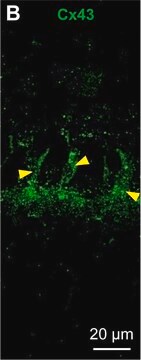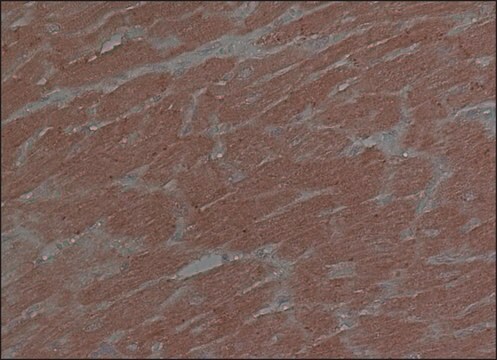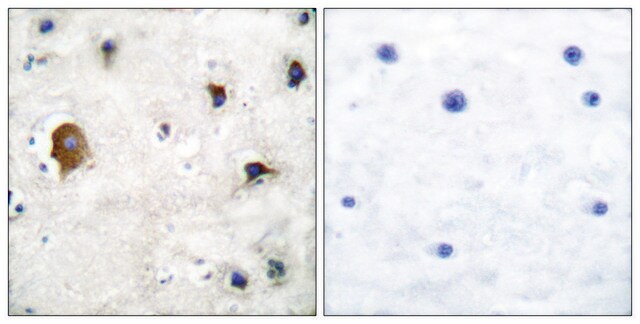推荐产品
product name
Anti-Connexin 43 antibody, Mouse monoclonal, clone CXN-6, hybridoma cell culture supernatant
生物源
mouse
品質等級
抗體表格
culture supernatant
抗體產品種類
primary antibodies
無性繁殖
CXN-6, monoclonal
形狀
buffered aqueous solution
物種活性
chicken, rat, feline, bovine, human, porcine, mouse
包裝
antibody small pack of 25 μL
濃度
~1.0 mg/mL
技術
immunoblotting: 1:5,000-1:7,500 using mouse myoblast C2C12 cell line extract
immunofluorescence: 1:500-1:1,000 using mouse myoblast C2C12 cell line
immunohistochemistry: 1:200-1:500 using heat-retrieved formalin-fixed, paraffin-embedded mouse heart sections
同型
IgM
UniProt登錄號
運輸包裝
dry ice
儲存溫度
−20°C
目標翻譯後修改
unmodified
基因資訊
bovine ... Gja1(281193)
cat ... Gja1(101100211)
chicken ... Gja1(395278)
human ... GJA1(2697)
mouse ... Gja1(14609)
rat ... Gja1(24392)
一般說明
免疫原
生化/生理作用
外觀
免責聲明
未找到合适的产品?
试试我们的产品选型工具.
儲存類別代碼
10 - Combustible liquids
水污染物質分類(WGK)
WGK 1
閃點(°F)
Not applicable
閃點(°C)
Not applicable
我们的科学家团队拥有各种研究领域经验,包括生命科学、材料科学、化学合成、色谱、分析及许多其他领域.
联系技术服务部门





